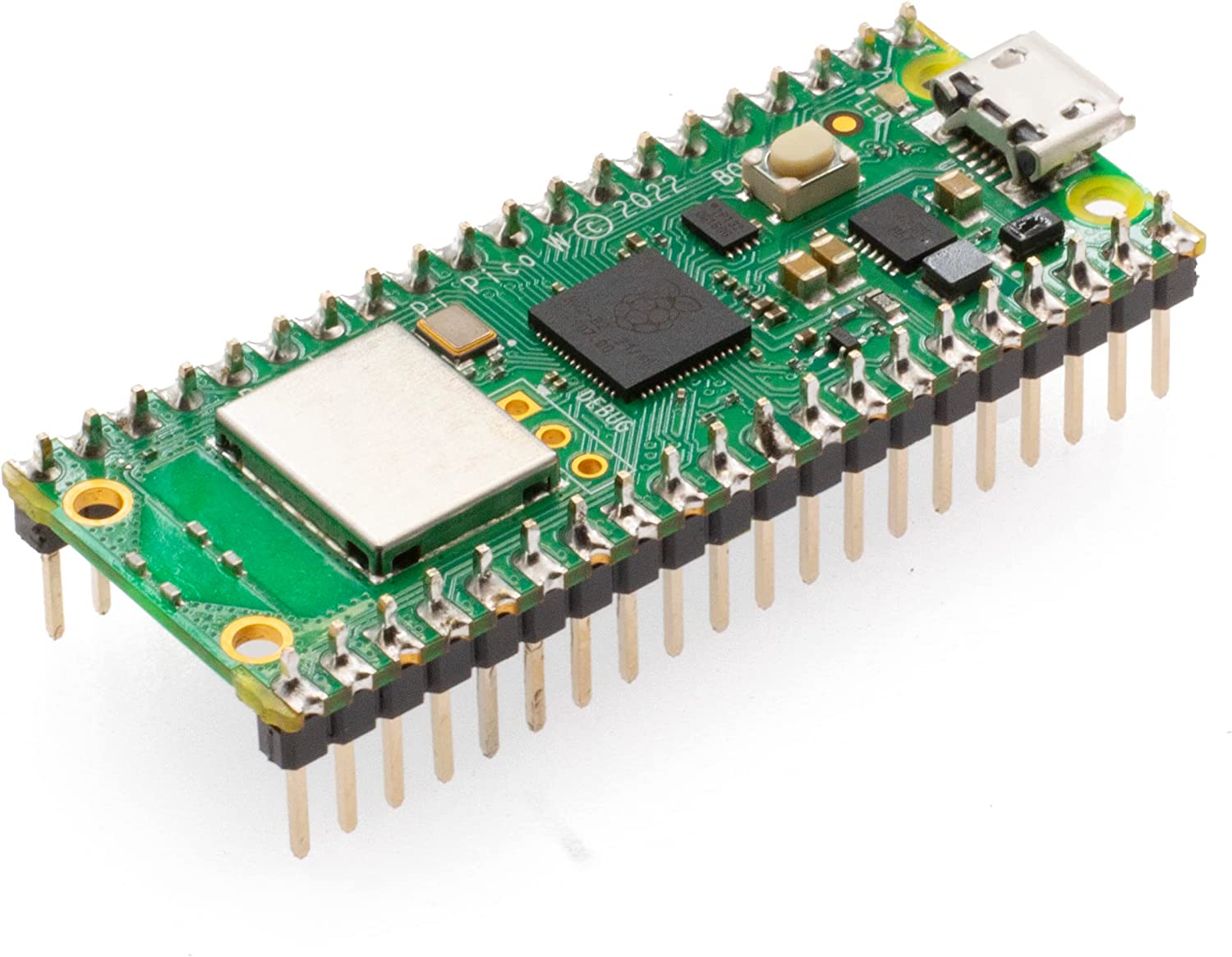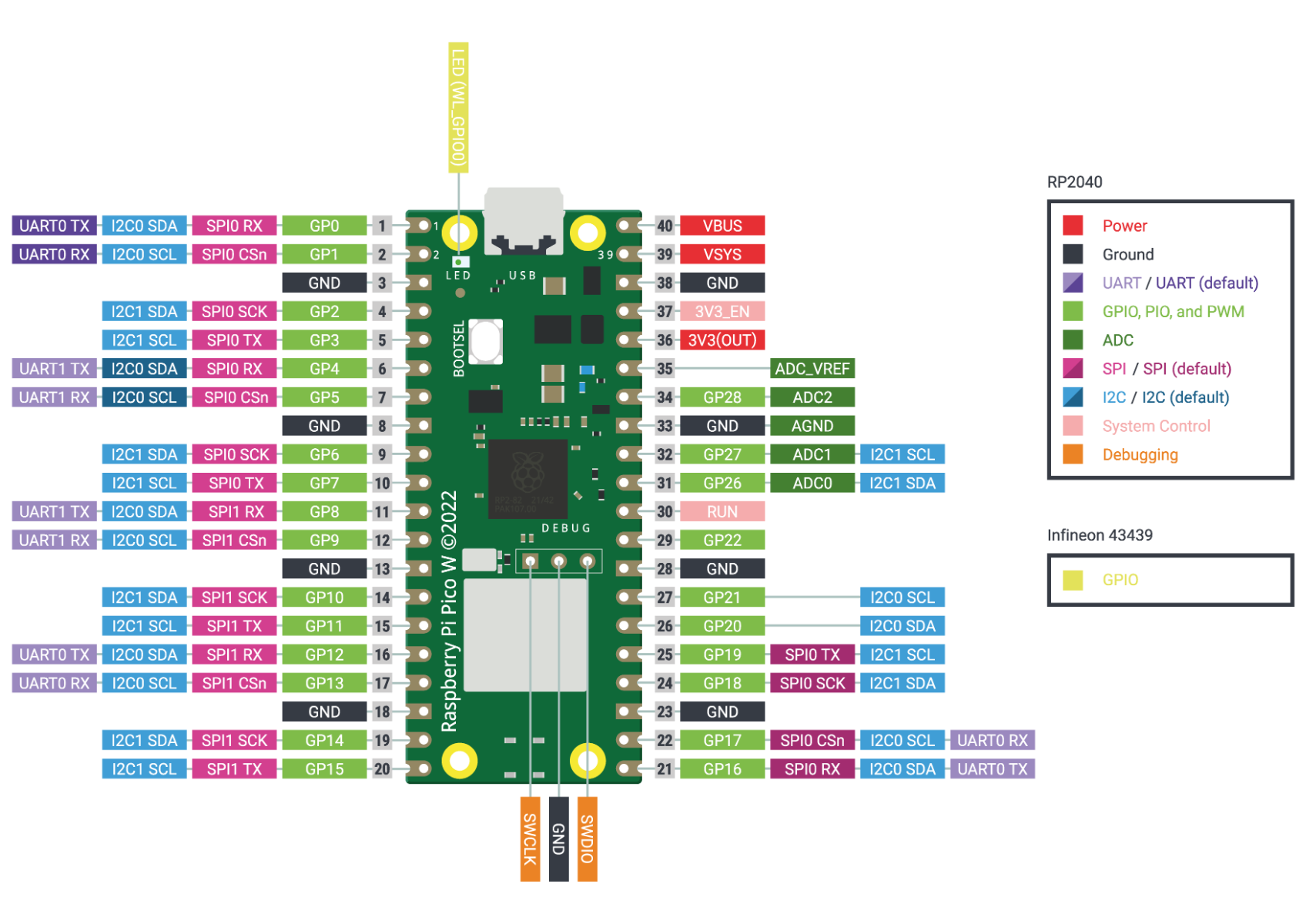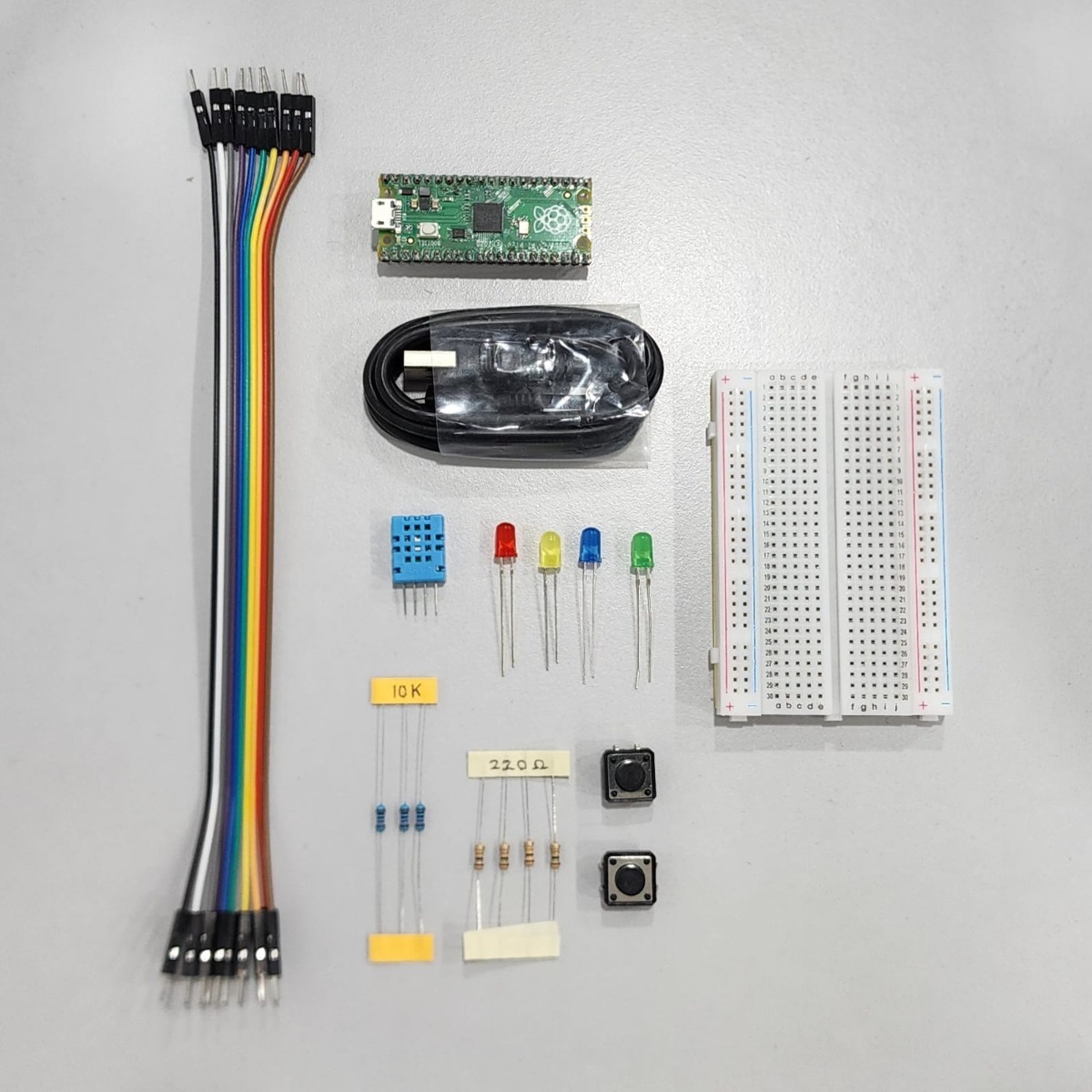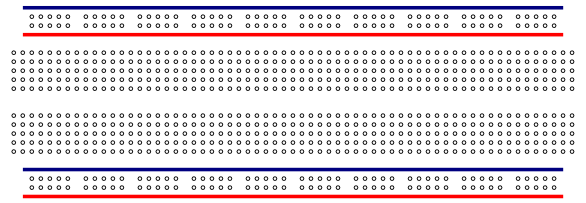Description
The Raspberry Pi Pico series is a range of tiny, fast, and versatile boards built using RP2040, the flagship microcontroller chip designed by Raspberry Pi in the UK.
From light displays and IoT devices to signage and manufacturing processes, the Raspberry Pi Pico series gives you the power to control countless home, hobby, and industrial operations. Programmable in C and MicroPython, Pico is adaptable to a vast range of applications and skill levels, and getting started is as easy as dragging and dropping a file. More experienced users can take advantage of Raspberry Pi Pico’s rich peripheral set, including SPI, I2C, and eight Programmable I/O (PIO) state machines for custom peripheral support. Now available with wireless connectivity or pre-soldered headers, for even more flexibility in your projects.
Features
- Wireless version of Raspberry Pi Pico
- 1st Microcontroller Development Board with Wireless from Raspberry Pi Foundation
- 1st Silicon (IC), RP2040 MCU designed from the ground up by engineers of Raspberry Pi Foundation
- Built-in CYW43439, offers Wireless LAN (WiFi) IEEE 802.11 b/g/n (2.4GHz), and Bluetooth 5.2 (not supported during launch)
- Onboard PCB Antenna
- Dual-Core, 32-bit ARM Cortex M0+ Processor
- Flexible clock, configurable max to 133MHz
- Ready with USB Micro B receptor for Power and Data
- Support USB 1.1 Host and Device
- Connected to the USB port and it will appear as USB Mass Storage by default, no driver is needed
- Supports CircuitPython, MicroPython, C, and C++ Programming Language
- Drag and Drop Program loading method, just like moving files in Windows Explorer
- Comes in 40-pin 21×51 ‘DIP’ style 1mm thick PCB with 0.1″ through-hole pins, breadboard-friendly
Peripheral rich:
-
- Extended out 26 multifunction 3.3V General Purpose I/O (GPIO)
- 23 GPIO are digital-only
- 3 x 12-bit ADC capable of 500Ksps, Analog to Digital Converter
- 2 x UART (Universal Asynchronous Receiver/Transmitter)
- 2 x SPI (Serial Peripheral Interface)
- 2 x I2C (Inter IC)
- 16 x PWM (Pulse Width Modulation)
- 1 x Timer with 4 alarms
- 1 x Real Time Counter
- 2 x Programmable IO (PIO) that can emulate high-speed interfaces such as SD card or VGA
- Built-in 12-bit ADC temperature sensor
- 3-pin ARM Serial Wire Debug (SWD) port
- Onboard Programmable LED
- Simple yet highly flexible power supply architecture
-
- Support USB power, external supply, or even battery power.
-
- Comprehensive SDK, software examples, and documentation
- Officially from Raspberry Pi Foundation
- Compatible with any computer with USB port, Windows, macOS, Linux
- Work seamlessly with Raspberry Pi 4 Model B, or Raspberry Pi 400 and Raspberry Pi OS
- Dimensions: 51mm x 21mm x 1mm
Tutorials
Resources
- Introduction to Thonny IDE (URL)
- Download Thonny IDE for Beginners (URL)
- Download Micropython Pico Firmware (URL)
- Getting Started with Raspberry Pi Pico (URL)
- Getting Started with Raspberry Pi Pico (pdf), C/C++ Development with the Pico and other RP2040-based microcontroller boards
- Raspberry Pi Pico W Datasheet (pdf)
- Raspberry Pi Pico Datasheet (pdf), An RP2040-based microcontroller board
- Pico Python SDK (pdf), A MicroPython Environment for the RP2040 Microcontroller
- Pico C/C++ SDK (pdf), Libraries and Tools for C/C++ Development on the RP2040 Microcontroller
- RP2040 Datasheet (pdf), A microcontroller by Raspberry Pi
- Mating Plug for the Debug connector, SHR-03V-S-B
- Quick-Start the Pico W WiFi with CircuitPython, by Liz Clark, at learn.adafruit
- A New Challenger in MCU Platform – Raspberry Pi Pico, an article about Raspberry Pi Pico and RP2040
- Raspberry Pi Pico Vs Arduino UNO R3, an article to compare the spec of RPi Pico and Arduino UNO R3
- A New Challenger in MCU Platform – Raspberry Pi Pico, an article about Raspberry Pi Pico and RP2040
- Raspberry Pi Pico Vs Arduino UNO R3, an article to compare the spec of RPi Pico and Arduino UNO R3





